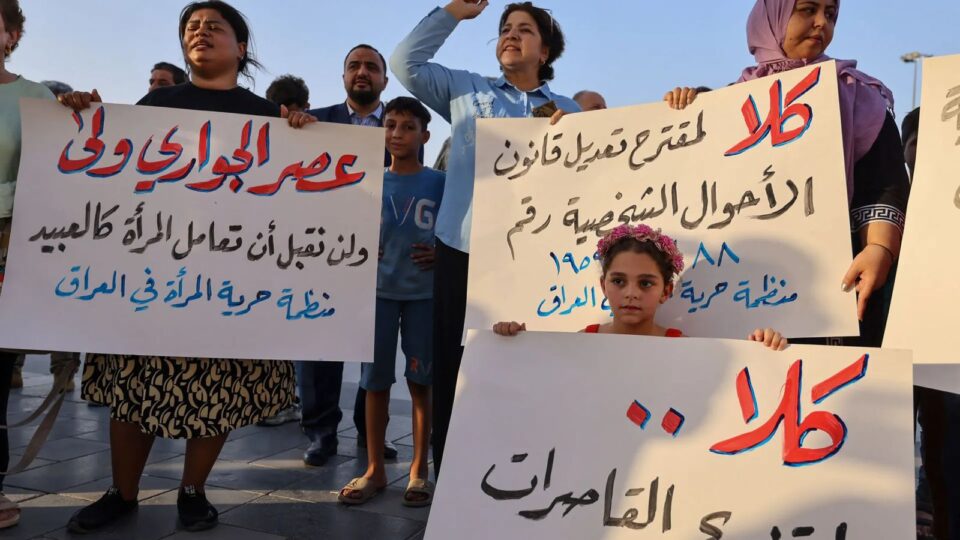New Amendments to the Personal Status Law:
Iraq from a Civil State to a Religious State

By Mohammed Rahman Ahmed
Since 2003, identity conflicts in Iraq have been continuously increasing, with sub-identities such as religious, sectarian, ethnic, and cultural groups becoming stronger, replacing a common national identity. Iraq has become an arena for the clash of these sub-identities, which serves the agenda of regional states and the ruling political elite, with Iraqi civilians being the victims.
The new personal status law in Iraq, which is currently being hotly debated, is an extension of the same sectarian policy, ending the story of Iraqi civilization and moving towards a religious and sectarian state. If Iraq has had religious politics, now the new amendment is trying to reshape family and social life in a religious way.
The Personal Status Law of 1959, passed during the reign of Abdul Karim Qassim, does not discriminate between religious and sectarian Iraqi citizens. However, the new amendment currently proposed allows parties to determine their religion during the marriage contract and form a family on that basis. Religious marriage is a return to dark and uncivilized times and contains numerous problems, as it allows several issues incompatible with the new era and civilization, against modern values, human rights, and gender equality. It includes some frightening points, such as:
It allows men to be superior to women, with all family decisions in men’s hands, even divorce. Women must only obey and follow orders; women have no right to ask for divorce.
It allows men to beat women and use violence against them whenever they disobey orders. Even if a man asks his wife for sex and she refuses, he can beat her. Because religiously, men are allowed to have sex with their wives whenever they want, regardless of the women’s wishes.
It allows girls to marry at a very young age, the age of puberty, which is set at nine years in Islam. This has a very negative impact on women in terms of educational level, mental state, health, financial independence, and more. The new amendment also allows for out-of-court marriages, replacing civil courts with religious and sectarian courts.
Furthermore, it opens the door to a type of marriage based on pleasure, such as temporary marriage (mut’ah marriage) among Shiites, or (misyar marriage) among Sunnis, which is a kind of secret marriage with no marital rights, and the man has no legal obligations such as paternity, expenses, etc.
Regarding inheritance, according to the current civil law, men and women are equal in inheritance, but according to Islamic law, women receive half, and women’s testimony in courts is still counted as half, due to the low status of women in religion.
In the current civil law, there are several conditions and measures for polygamy. If men want to marry a second or third wife, the conditions are somewhat in favor of women, although not well implemented. It imposes that whenever men want to practice polygamy, their wife must agree and sign, and it imposes certain conditions on the man that he must fulfill to treat his wives equally and fairly. For this, the wife is given the right to seek divorce if her husband doesn’t meet the conditions, but the new amendment has also deprived women of the right to seek divorce. Worst of all, the mother is deprived of child custody upon divorce, because according to Islam, the child’s property returns to the father.
According to Islamic law, fathers also have the right to beat their children if they disobey their fathers’ orders, especially the order to pray. As a result, civil law cannot prevent domestic violence, because in Islamic law domestic violence is justified.
Overall, this new amendment opens a very dangerous door for the future of Iraq, causing many social problems, and will have a very negative impact on the level of awareness and development of women’s literacy and culture.

